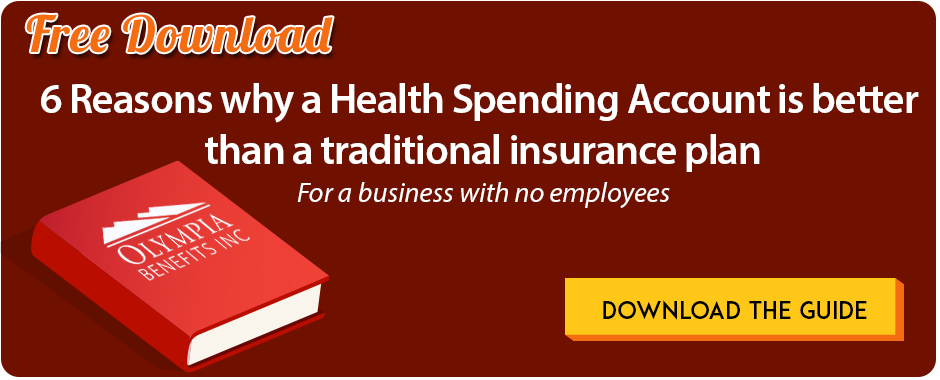This article will cover:
- How group health insurance deductibles work
- Finding a plan with no deductible
- The reality of private health insurance in Canada
- An affordable, cost-effective solution for health and dental coverage
- Saving more through an HSA group plan
What is a deductible?
A deductible is the base amount you must pay (during a given time period, for example, yearly) before your insurance carrier is going to step in. In other words, you must pay up to an amount (on the health expense) before the insurer contributes. If your deductible is $100 and the dentist checkup was $300, then you must pay for the first $100 of the $300, leaving $200 for insurance to cover. Keep in mind, there may also be co-insurance and co-pay terms built into your plan. These additional costs come into play after your deductible is met. Very few insurance carriers offer plans which cover 100% of medical costs.
Can I get health insurance with no deductible?
First, we must understand that there are two types of health insurance - public and private. In this article, we are referring to private health insurance which is marketed and sold by by insurance companies. The other form of health insurance in Canada is public, which is provided by the provincial government. A private health insurance plan comes with fees like premiums, copay, and deductibles.
Back to the question of finding a private insurance plan with no deductible. Typically, an insurance carrier will increase the monthly premium when there is little to no deductible. This ensures that insurers maintain their expected profit/loss ratio. It is standard for zero or low deductible plans to be offset with higher premiums. The opposite is true for a high deductible plan. This moves us onto our second point.
Should I avoid a private health insurance plan?
Another compelling argument against insurance (besides their expensive costs) is the nature of health and dental maintenance. In most cases, health and dental expenses are categorized as non-catastrophic/planned events. Let's think of an example: you visit your dentist to get teeth cleaned 1-2 times a year. This is a planned event because you have it scheduled on your calendar.
On the other hand, there are chance (or unplanned) events. These are usually catastrophic events with a low probability of occurring. An example would be your house burning down or a fatal car crash. There is a low probability of occurrence but the event is still plausible. Insurance exists for these unplanned events. You pay the insurer a premium to transfer away your individual risk.
The key takeaway is this: there is no need to insure health and dental expenses because they are planned/non-catastrophic events. It’s more cost-effective to invest in an Health Spending Account (HSA), which eliminates the taxes on these expenses. An HSA provides the same fundamental solution and is available to those with pre existing conditions. An HSA incorporates principles of tax planning paired with medical insurance and is created specifically for small business owners.
Note: It is possible to have unplanned health and dental events such as a tooth cavity, but they are not insurable. To further add to that point: a cavity is unplanned, but also non-catastrophic, meaning the costs will not be significant enough to deem insurance necessary.
Is there an alternative to cover my health expenses?
Yes, a Health Spending Account (HSA) has no premiums, deductibles, copay, or any of the standard fees associated with insurance.
How does a Health Spending Account work and why does it have no deductibles, premiums, or copay?
An HSA enables a small business owner to deduct 100% of their health and dental expenses - without paying the fees typically associated with private health insurance plans. An HSA does not work in the traditional ways of paying a premium and getting coverage. It incorporates principles of both tax planning and medical insurance. To qualify for this plan, you must own or operate a small incorporated business. To sum up an HSA in one sentence, it legally writes off your personal health expenses. In other words, it turns your after-tax personal medical costs into before-tax business expenses.
In most cases, this method will save you more money in comparison to paying a monthly premium under a health insurance plan. You can claim all health-related expenses. It's that simple.
How can I save more even if I already use insurance?
The associated costs of private health insurance (premiums, deductibles, copay, etc.) are tax deductible through an HSA, meaning you can turn these after-tax costs into before-tax expenses. These two plans can work in conjunction.
Get an in-depth comparison between an HSA and traditional health insurance.
For an owner / operator business with no arm's length employees, click below:
